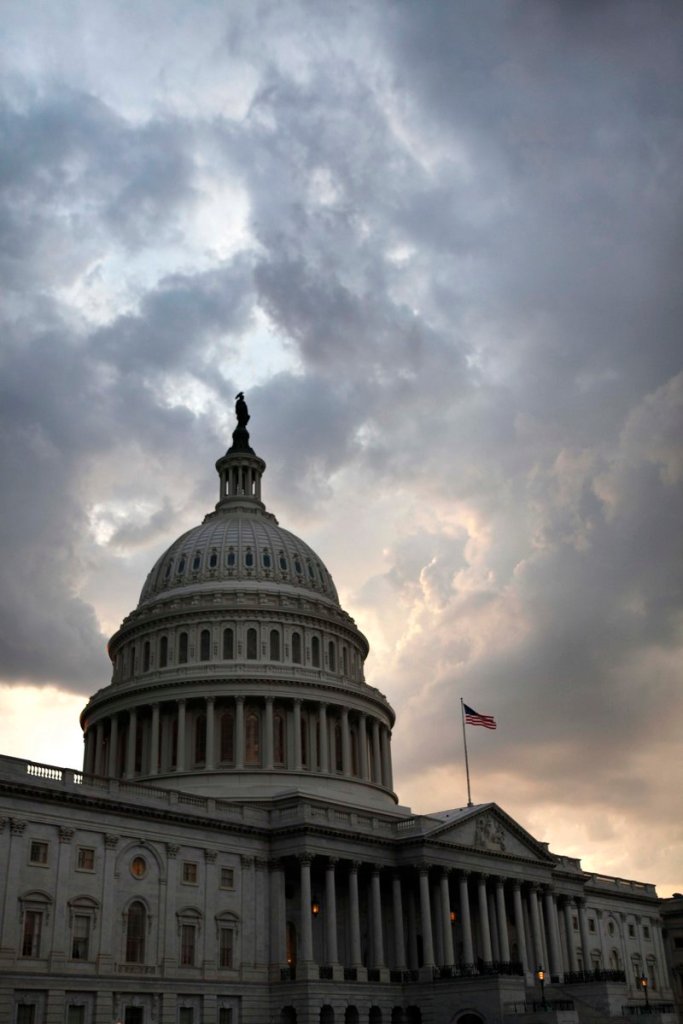The deficit reduction package signed by President Barack Obama ends one standoff but makes it likely there will be another before the end of the year. The package initially cuts spending by $917 billion over the next decade. It also creates a new joint committee of Congress that will attempt to come up with more cuts. If Congress doesn’t approve the committee’s plan, additional automatic cuts of $1.2 trillion would be imposed, starting in 2013.
The big issues facing Obama and Congress:
Health Care
• Congressional Democrats successfully opposed cuts to Medicare benefits, but lawmakers didn’t completely shield the program. Although there will be no initial reductions, there would be an automatic 2 percent cut to providers if the new joint committee cannot agree on a new deficit reduction package. The joint committee can include Medicare changes in its package.
• Republicans have endorsed a plan that would transform Medicare into a voucher-like system for new retirees. Private insurance plans, not the government, would pay medical bills.
• Obama was willing to raise the eligibility age for Medicare from 65 to 67, and to increase co-pays and premiums, based on income, but only as part of a “grand bargain” that included tax increases.
• The Medicaid health care program for the poor was exempted from the deficit reduction package, though cuts could be on the table when the new joint committee meets.
Social Security
• Many congressional Democrats oppose benefit cuts, and they were successful in excluding Social Security from the deficit reduction package. Changes to the massive retirement and disability program, however, could be on the table when the new joint committee considers further cuts.
• Many Republicans have endorsed a range of changes, including raising the early retirement age (currently 62) and the age when retirees qualify for full benefits (currently 66, gradually increasing to 67). GOP lawmakers generally oppose tax increases to shore up Social Security.
• Obama proposed adopting a new measure of inflation that would reduce annual cost-of-living increases in benefits, but only as part of a “grand bargain” that would raise taxes.
Taxes
• Congressional Democrats were unable to include tax increases in the deficit reduction package. They will try again when the new joint committee considers further ways to reduce the deficit. Democrats would target high-income taxpayers, oil and gas companies, and U.S.-based multinationals.
• Republicans opposed tax increases in the deficit reduction package and have vowed to fight them again in the new joint committee. Many GOP lawmakers say they favor reducing or eliminating deductions, credits and exemptions, but only as part of a tax reform package that lowers overall tax rates. House Speaker John Boehner says he was willing to accept $800 billion in new revenue over the next decade as part of a grand bargain. That sparked a revolt among many GOP lawmakers.
• Obama unsuccessfully pushed for tax increases as part of the deficit reduction package. The White House has said it will urge the new joint committee to propose raising more revenue through tax reform, though Republicans and some Democrats oppose the idea and congressional budget rules would make it very difficult to do. There are no automatic tax changes like the automatic spending cuts that will take place if the joint committee doesn’t produce a bill that is enacted into law.
Debt Limit
• Congressional Democrats were split over whether raising the debt ceiling should be tied to deficit reduction. Many Democratic leaders wanted a clean increase in the borrowing limit, with no strings attached, as had been done dozens of times in the past. Other Democrats wanted it tied to deficit reduction.
• Republicans successfully demanded spending cuts in exchange for increasing the government’s ability to borrow, perhaps setting a precedent that could lead to similar debt crises in the future.
• Obama initially asked for a clean increase in the debt limit. He lost on that issue, but he was able to ensure that the government’s borrowing authority will be extended through the 2012 presidential election, when the government will operating under a debt ceiling of at least $16.4 billion.
– From news service reports
Send questions/comments to the editors.



Success. Please wait for the page to reload. If the page does not reload within 5 seconds, please refresh the page.
Enter your email and password to access comments.
Hi, to comment on stories you must . This profile is in addition to your subscription and website login.
Already have a commenting profile? .
Invalid username/password.
Please check your email to confirm and complete your registration.
Only subscribers are eligible to post comments. Please subscribe or login first for digital access. Here’s why.
Use the form below to reset your password. When you've submitted your account email, we will send an email with a reset code.